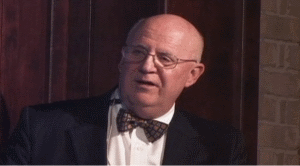A Mississippi brother suggests that divine miracles such as those found in the Book of Acts occurred until the Apostles and their immediate converts died, then ceased forever. As evidence, he cites Acts 1:8, Mark 16:20 and Hebrews 2:4. * * * The specific promise in Acts 1:8 of forthcoming "power" is addressed to the Eleven Apostles. In this verse, Jesus directly relates that power to the coming of the Spirit, an event which the very next chapter of Acts records. However, divine witnessing power is not limited to the Apostles, as Acts 4:31 makes plain with its report not only that the whole … [Read more...]
Archives for February 2012
NATURAL AND SUPERNATURAL
A gracEmail reader says: "I believe that God still works but not in supernatural ways. Today God works through natural law. Miracles in the Bible go against or supercede natural law. God has stopped doing miracles." * * * God is supernatural and all his works are supernatural by definition. What we call "natural" activities are merely the usual or ordinary ways we observe God working in the universe. "Laws of nature" are nothing but our conclusions based on inductive reasoning, formed by observation of the ordinary courses of the created world around us. There is no "law of nature" apart … [Read more...]
MYSTERY OF THE WIND
We welcomed recent days of steady rain in these west Houston suburbs. Now I welcome this break in the rain for a neighborhood hike. Scattered rain-clouds, flung in a wide sweep across the sky, hide the evening sun on this Texas Gulf Coast. Developers planted our Katy prairie land with trees two and three decades ago, and they now form a trekker's pleasant canopy overhead. Around and below me, the gentle wind rustles through the grass and flowers and trees. Overhead it moves the clouds across the half-darkened sky. I think of Jesus' comparison of God's Spirit to the wind. Both are invisible … [Read more...]
THE SOURCE OF SAVING FAITH
A Christian college Bible professor writes: "Why do people believe the gospel? Reasoning from historical witness that one believes to be real history, attesting to events that happened in time -- that has been and remains the Christian way. If that is not the only source of belief, it remains an important one." * * * "Important," we can agree, but scarcely the ultimate answer, mustn't we say in view of New Testament revelation? Consider Jesus' bold affirmation: "No one can come to me, unless the Father who sent me draws him; and I will raise him up on the last day. It is written in the … [Read more...]
BIBLE INSPIRED (2)
A gracEmail subscriber in Arkansas writes, "I've always been taught that the Bible was divinely given word by word (I think this is called verbal inspiration). But some passages just sound like a believer pouring out his heart to others. Could you offer some thoughts on inspiration and the Bible?" * * * Just as Jesus was both human and divine, so Scripture is written by men although it is called "the Word of God." But God used ordinary men to write it, men who usually had no idea that they were writing Scripture. The Bible includes a wide variety of ordinary types of literature, composed … [Read more...]
BIBLE INSPIRED (1)
A gracEmail subscriber in Arkansas writes, "I've always been taught that the Bible was divinely given word by word (I think this is called verbal inspiration). But some passages just sound like a believer pouring out his heart to others. Could you offer some thoughts on inspiration and the Bible?" * * * Unlike the Qur'an, the Bible does not claim to be dictated word for word by God, except for certain portions which repeat oracles given to prophets and which usually are introduced by the statement, "Thus says the LORD . . . . " The Apostle Paul does say that "all Scripture is inspired by … [Read more...]
BAPTISM IN THE HOLY SPIRIT
A gracEmail reader asks whether we are baptized "in" the Holy Spirit or "by" the Holy Spirit, since the Greek preposition en used in 1 Corinthians 12:13 can mean either, and what difference it makes anyway. * * * Paul's comments in 1 Corinthians 12:13 stand in contrast to his remarks about Israel's "baptism" earlier in the same epistle (1 Cor. 10:1-3). There he pointed out that all the Exodus generation of Israelites were baptized "in" the cloud and sea, "into" (or "unto") relationship with Moses. Later, in 12:13, he notes that all Christians are baptized "in" the Holy Spirit -- by Jesus, I … [Read more...]
ANOINTED PREACHING
A sister in Virginia writes, "You recently asked readers to pray that God would 'anoint' your messages during a weekend preaching mission. This is not a word commonly used by people in my church. Please elaborate on what you mean." * * * This figure of speech goes back to the Old Testament practice of pouring oil over the head of someone being formally set apart for service to God, whether the "anointed" person was a prophet, priest or king (Ex. 28:41; 1 Sam. 16:1-3; Zech. 4:14). By this act, the faith-community acknowledged that God also had "anointed" or poured out special grace on the … [Read more...]
HOLY SPIRIT & SANCTIFICATION
A gracEmail subscriber invites my thoughts concerning the role of the Holy Spirit regarding our sanctification as children of God. * * * "Sanctification" is the process of being "sanctified" (from the Latin root word) or being made "holy" (from the Anglo-Saxon word), both of which refer to being set apart exclusively for God. These words have a rich priestly background in the Old Testament where the priests, the tabernacle, the sacrifices and all the furniture and utensils related to those things were dedicated exclusively to God and were considered holy for that reason. In a fundamental … [Read more...]
HOLY SPIRIT OUTSIDE THE BIBLE
A gracEmail reader writes: "I ordered tapes from a religious event, in which someone said that the Holy Spirit works only through the Bible and does not actually live in the Christian. Would you discuss that sometime?" * * * This eccentric notion was once common in Churches of Christ but has largely disappeared today, as the result of an ongoing biblical renewal and gospel revival currently underway in that nondenomination. The argument served several purposes, none of them biblically valid. It attempted to deflect testimonies of other Christians who claimed contemporary spiritual gifts. It … [Read more...]


